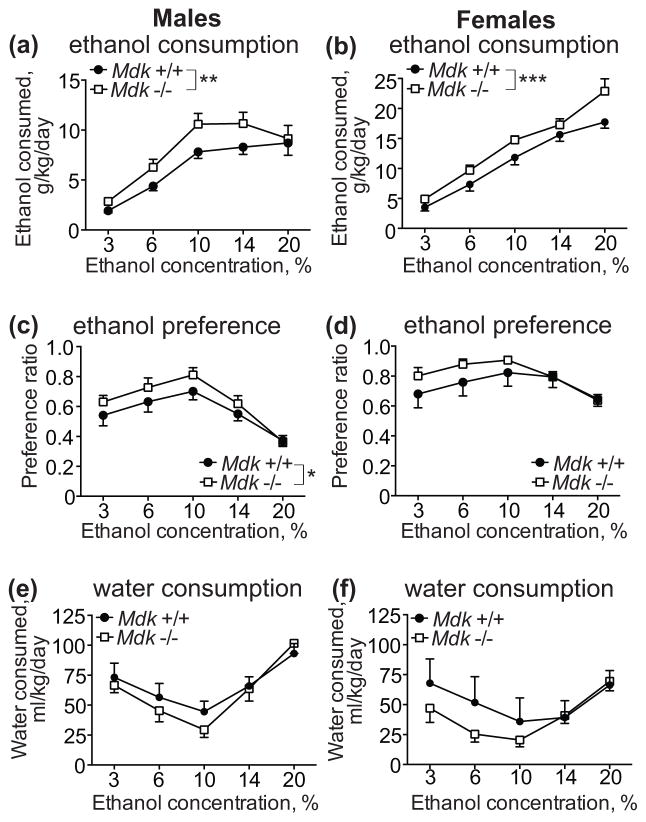Figure 1. Midkine knockout mice consume more ethanol than controls in a 2-bottle choice ethanol consumption test.
Male (a, c, e) and female (b, d, f) wild type (Mdk +/+, filled circles) and homozygous midkine knockout (Mdk −/−, open squares) mice underwent a 2-bottle choice test for water or 3, 6, 10, 14, and 20% (v/v) ethanol with four days of 24 h access at each ethanol concentration. (a, b) ethanol consumed in g ethanol/kg body weight/day. There was a significant effect of genotype and ethanol concentration in both sexes. (c, d) Ethanol preference, calculated as the ratio of the volume of ethanol consumed over the volume of total fluid consumed. There was a significant effect of genotype and ethanol concentration in males, and a significant effect of ethanol concentration in females. (e, f) Water consumed during the ethanol consumption test at each concentration of ethanol. Data is presented as ml water consumed/kg body weight/day. No significant genotype effect was observed for water consumption in either sex. Male Mdk +/+, n = 9; male Mdk −/−, n = 7; female Mdk +/+, n = 6; female Mdk −/−, n = 9. * P < 0.05, ** P < 0.01, *** P < 0.001 by two-way ANOVA. Data are presented as the mean ± SEM.

